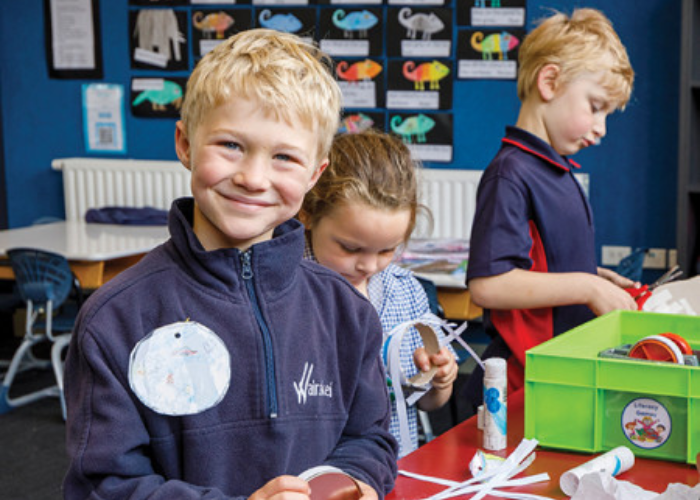Education is often associated with a classroom, a teacher at the front, and students in rows of desks. While this traditional model of learning has been the cornerstone of education for centuries, the concept of learning extends far beyond the boundaries of a classroom. In fact, the classroom is just the beginning of a lifelong journey of acquiring knowledge and skills. This article explores the idea of lifelong learning, its importance, and various strategies to foster it beyond the confines of formal education.
The Evolution of Learning
Human beings are inherently curious creatures. From the moment we are born, we begin to explore the world around us, asking questions and seeking answers. This natural inclination towards learning is what drives our personal and collective progress.
However, for much of human history, the pursuit of knowledge was limited to a few privileged individuals who had access to books and formal education. The advent of the printing press in the 15th century made information more accessible, but it wasn’t until the 20th century that education became widely available to the masses, thanks to the expansion of public schooling.
Despite this progress, many people still associate learning primarily with formal education, typically ending in their mid-20s or early 30s. However, in today’s rapidly changing world, this limited view of learning is no longer sufficient.
Lifelong Learning Defined
Lifelong learning is a philosophy that embraces the idea that learning should be a continuous, lifelong process. It is the self-motivated pursuit of knowledge and personal development throughout one’s life. Lifelong learners are driven by curiosity and a desire to grow, not just to earn degrees or certifications.
This concept challenges the traditional notion that education ends after a certain age or when specific qualifications are achieved. Instead, it recognizes that learning is an ongoing journey with no fixed destination. Lifelong learning can take many forms, from acquiring new skills to exploring different perspectives, and it can occur in a variety of settings, not just within the walls of a classroom.
The Importance of Lifelong Learning
Embracing lifelong learning has become increasingly crucial in today’s world for several reasons:
Adaptability to Change
The pace of change in the modern world is unprecedented. Technological advancements, economic shifts, and societal changes happen at an alarming rate. Lifelong learners are better equipped to adapt to these changes because they are accustomed to acquiring new knowledge and skills.
Career Advancement
In a competitive job market, staying relevant is essential. Lifelong learning allows individuals to expand their skill sets and stay competitive in their careers. It also opens up opportunities for career advancement and personal growth.
Personal Fulfillment
Learning is not just a means to an end; it can also be deeply fulfilling. Lifelong learners often report higher levels of satisfaction and happiness in their lives. The pursuit of knowledge and personal growth can be inherently rewarding.
Problem-Solving Skills
Lifelong learners tend to be better problem solvers. They are used to tackling new challenges and finding innovative solutions. This ability is invaluable in both personal and professional life.
Intellectual Stimulation
Learning keeps the mind active and engaged. It can stave off cognitive decline as people age and contribute to overall mental well-being.
Strategies for Nurturing Lifelong Learning
Encouraging and fostering lifelong learning doesn’t happen automatically. It requires deliberate effort and the right mindset. Here are some strategies to help individuals and society as a whole embrace and nurture lifelong learning:
Cultivate Curiosity
Curiosity is the foundation of lifelong learning. Encourage children and young people to ask questions and explore their interests. In adulthood, make a conscious effort to stay curious about the world around you.
Promote a Growth Mindset
A growth mindset is the belief that abilities and intelligence can be developed with effort and practice. Encourage this mindset in yourself and others. Embrace challenges and see failures as opportunities for growth.
Set Personal Goals
Having clear goals can provide motivation and direction for learning. Whether it’s learning a new language, mastering a musical instrument, or acquiring a professional certification, setting specific goals can help individuals stay focused on their learning journey.
Use Technology to Your Advantage
The internet has democratized access to information and learning resources. Take advantage of online courses, educational websites, and digital libraries. Platforms like Coursera, edX, and Khan Academy offer a wide range of courses on diverse topics.
Read Widely
Reading is one of the most accessible ways to learn. Make reading a habit and explore various genres and topics. Don’t limit yourself to books; online articles, blogs, and academic journals offer a wealth of information.
Engage in Discussions and Debates
Learning is not a solitary activity. Engaging in discussions, debates, and dialogues with others can deepen your understanding of a subject and expose you to new perspectives.
Attend Workshops and Seminars
Participating in workshops, seminars, and conferences can provide hands-on learning experiences and networking opportunities. Many organizations offer these events on a wide range of topics.
Join Clubs and Organizations
Joining clubs or organizations related to your interests can create a sense of community and provide opportunities for collaborative learning. Whether it’s a book club, a sports team, or a hobby group, being part of a community can be motivating.
Teach Others
Teaching is one of the most effective ways to learn. Share your knowledge with others, whether it’s by tutoring a student, leading a workshop, or writing a blog. Teaching forces you to clarify your understanding and can be a rewarding experience.
Embrace Failure
Failure is a natural part of the learning process. Don’t be discouraged by setbacks; instead, see them as opportunities to learn and improve.
Create a Learning Environment
Design your living and working spaces to be conducive to learning. Surround yourself with books, educational materials, and inspirational quotes or artwork.
Practice Mindfulness
Mindfulness practices, such as meditation, can enhance your ability to focus and learn. They can also reduce stress and anxiety, making learning more enjoyable.
Fostering Lifelong Learning in Society
Nurturing lifelong learning is not solely an individual responsibility; it’s something that society as a whole should promote and support. Here are some ways in which communities, educational institutions, and governments can contribute to a culture of lifelong learning:
Accessible Education
Ensure that education is accessible to all, regardless of age or background. Offer flexible learning options, including part-time and online courses, to accommodate the needs of adult learners.
Continual Professional Development
Encourage and provide opportunities for employees to engage in lifelong learning. This can include offering training programs, supporting certifications, and creating a culture that values ongoing skill development.
Public Libraries and Learning Centers
Invest in public libraries and community learning centers. These institutions can serve as hubs for lifelong learning, offering access to books, digital resources, and educational programs.



